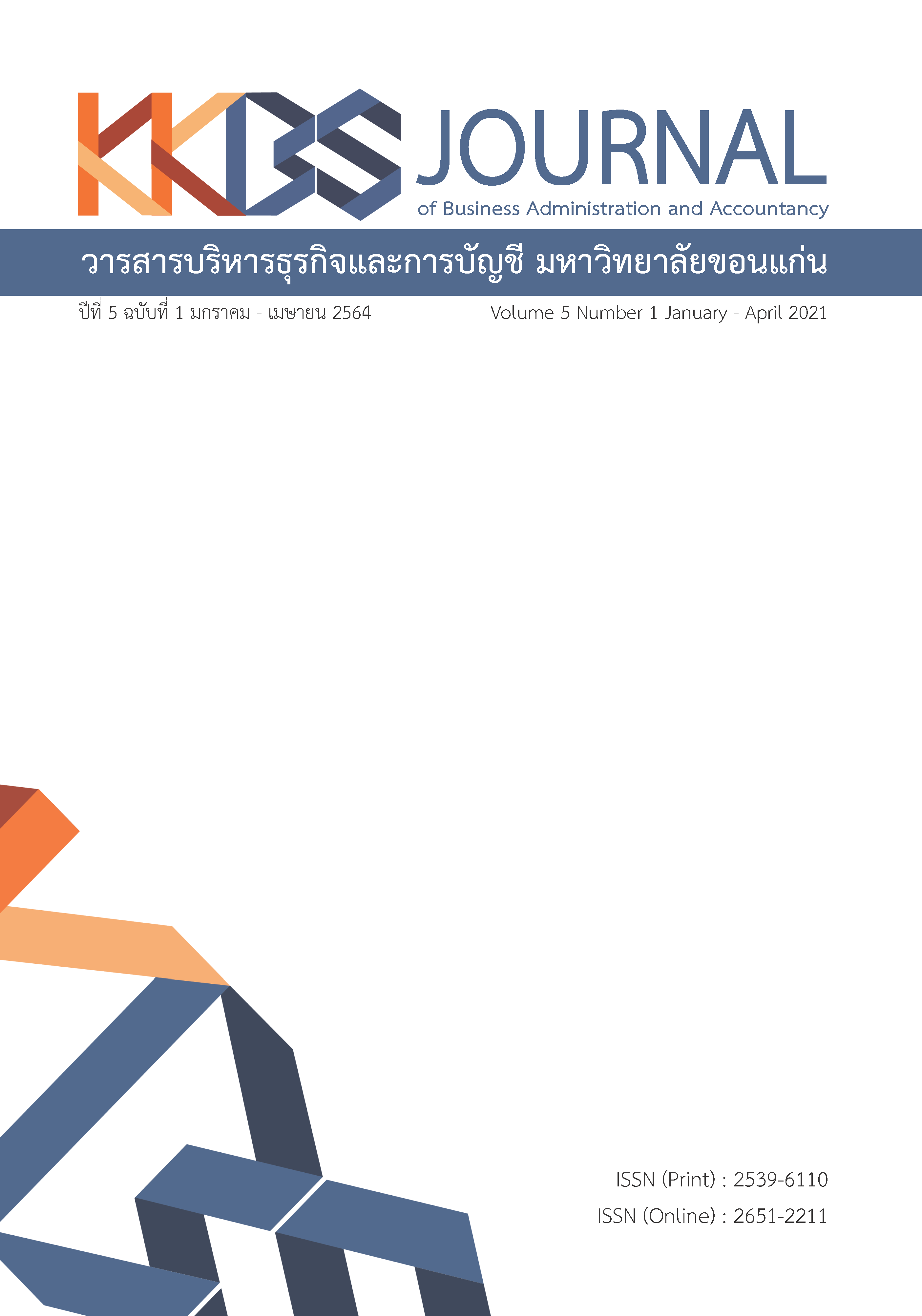A Causal Relationship of Job Burnout Syndrome and Internal Factors to Personnel Performance in Burapha University
Main Article Content
Abstract
The objective of this research are development and examination the consistency of the causal relationship model between burnout and internal factors that affect the work efficiency of personnel at Burapha University. The samples were 300 University employees who are academic support staff positions by proportional stratified random sampling. Questionnaire is a research tool which data is analyzed by Path Analysis.
The results show that the most influential factor in Burnout syndrome (BO) is the task Orientation (TO), which negatively affects. The second is Eco Orientation (EO) goal, and Overload (OL). The third is Trait Anxiety (TA) and Role Conflicts (RC). Burnout variables will negatively affect work efficiency variables of university personnel.The developed model is consistent with the empirical data, which is determined by χ2 = 14.46, df = 9, P-Value =.11, CFI =.99, GFI = .99, SRMR =.05, RMSEA =.02
Article Details
The articles published in the journals are the authors' opinions, not the opinion of the editorial team or administrative staff. The articles published is copyright of the Journal of Business Administration and Accounting, Khon Kaen University.
References
Best, J. W. & Kahn, J.V. (2006). Research in education. 10th. New Delhi: PHI Learning. Department of Industrial Promotion. (2020). Attitude is everything life. Retrieved May 1, 2020, from: https://www.dip.go.th/th/category/knowledge/2020-06-28-15-58-16 (In Thai)
Division of Human Resources Administration and Development. (2019). Burapha University employee data statistics. Retrieved May 1, 2020, from: http://personnel.buu.ac.th/document/Person3166.pdf (In Thai)
Dubois, B. et al. (2014). Advancing research diagnostic criteria for Alzheimer's disease: the IWG-2 criteria. The Lancet Neurology, 13(6), 614-629.
Hair, J.F. et al. (2014). Multivariate data analysis. 7th ed. Harlow: Pearson.
Herbert, J. (1970). Direct observation as a research technique. Psychology in the School, 7(2), 137-138.
Hoboubi, N. et al. (2017). The impact of job stress and job satisfaction on workforce productivity in an Iranian petrochemical industry. Safety and health at work, 8(1), 67-71.
Katavanit, T. (2003). General psychology. Bangkok: Se-ed. (In Thai)
LaRosa, J.C. et al. (1970). A specific apoprotein activator for lipoprotein lipase. Biochemical and biophysical research communications, 41(1), 57-62.
Limpitikranon, P. (2020). OKR guide. Retrieved May 1, 2020, from: https://www.okr-thai.com/okr-guide/ (In Thai)
Maslach, C. & Leiter, M.P. (2016). Understanding the burnout experience: recent research and its implications for psychiatry. World Psychiatry, 15(2), 103-111.
Moorhead, G. & Griffin, R.W. (2001). Organizational behavior: Managing people and organizations. 6th ed. Mason: Houghton Mifflin College.
Patcharanan, K. (2007). The reason why the team must fail. For Quality, 13(112), 88-92. (In Thai)
Psychiatric Association of Thailand. (2019). Burnout. Retrieved December 9, 2019, from: https://www.ThaiPsychiatricAssociation/ (In Thai)
Raedeke, T.D. & Smith, A.L. (2004). Coping resources and athlete burnout: An examination of stress mediated and moderation hypotheses. Journal of sport and exercise psychology, 26(4), 525-541.
Ratchagit, T. (2020). Work life balance. Retrieved May 1, 2020. from: https://th.hrnote.asia/personnel-management/190725-work-life-balance (In Thai)
Schaufeli, W.B., Leiter, M.P. & Maslach, C. (2009). Burnout: 35 years of research and practice. Career development international, 14(3), 204-220.
Smith, J.T. (1986). The mode of action of 4-quinolones and possible mechanisms of resistance. Journal of Antimicrobial Chemotherapy, 18, 21-29.
Soonsawat, A. (2020). Burnout syndrome. Retrieved December 9, 2019, from: https://www.bangkokhospital.com/content/burnout-syndrome (In Thai)
Wichetwichai, Y. (2018). Butnout syndrome. Bangkok: Samitivej Hospital. (In Thai)


